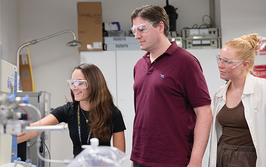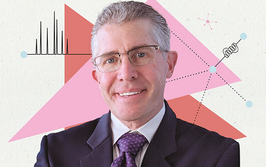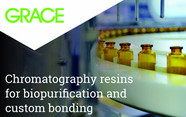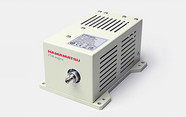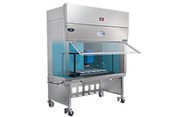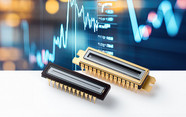Wim De Malsche
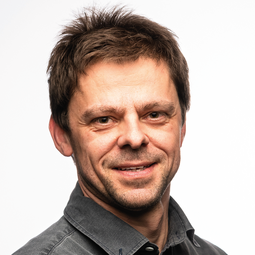
Professor (Group Leader) µFlow group, Chemical Engineering Department, Bioengineering Sciences Department; Director MICROLAB, Microfabrication Core Facility; Vrije Universiteit Brussel, Belgium
Main research aims… To gain full control of liquid flow profiles in flow devices and of trajectories of molecules and (bio)particles within these liquids, enabling the highest possible resolution batch and continuous separations.
Most exciting recent instrumental innovation? Vortex chromatography, a methodology allowing for dramatic reduction of chromatographic dispersion by inducing lateral flows. By just a power source of a few volts in AC mode to induce lateral flow in a chromatographic channel equipped with electrical contacts, dispersion (plate height) can be reduced up to a factor of five. This can be done in high end glass-type of devices, but also in cheap plastic – mass reproducible – columns.
Making analytical instruments accessible… Current HPLC instrumentation is too bulky and expensive. Recent developments in optics, more general detection devices, and in pumping instrumentation allow for shoe-box compatible solutions. For many applications ultra-high pressures are not needed, especially when performances similar to conventional micron scale packings can be attained using larger channel (packing) dimensions through miniaturization and by applying lateral (vortex) flow methodologies.
What’s missing from the analytical toolbox? Chromatographic systems should be standard equipped with two types of detectors, one for quantification and one for identification. The needed technology is out there: current detection technologies allow for localized detection, current (miniaturized) flow technologies allow for detection without messing up the separation during detection.
How would you spend a $1 billion research grant? I would spend half of it to build analytical flow devices with the highest possible separation efficiency and detection sensitivity. The other half I would use to simplify instrumentation for routine analyses, to reduce the cost and make systems as portable as possible so that remote and less equipped areas can be better served.
Most memorable piece of advice? While I was a PhD student, I was once explaining to a professor how much work I did and how busy I was – half expecting an impressed reaction. His rather dry reaction was that the ability to get things done in regular working hours is a measure of quality. He was right about that!

